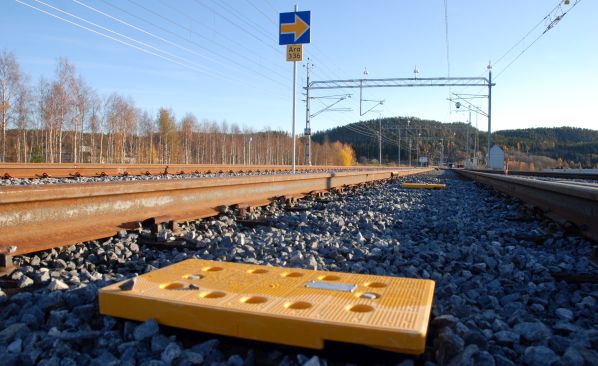MEMBERS of the European Parliament (MEPs) have called for an “urgently needed” 10-fold increase in the pace of deploying ERTMS on the core Trans-European Transport Network (TEN-T).
A resolution on railway safety and signalling, which scrutinises ERTMS and calls for its full deployment, was adopted by the European Parliament by 667 votes to 11 on July 7, with 14 abstentions. The resolution says that despite past initiatives, the roll-out of ERTMS is far behind schedule and full interoperability is not yet achieved. MEPs suggest that complete roll-out would increase capacity on existing lines by up to 30% and is essential in achieving the climate and digital transition goals.
As part of the efforts to improve European rail management, MEPs are calling for improved coordination in ERTMS deployment. They argue that a 10-fold increase in the deployment pace is urgently needed to achieve a digital transition, improve the safety of the European rail network, and meet the existing 2030 core network rollout deadline.
The first commercial lines using ERTMS opened in 2005, but the pace of the roll out has been slow. The European Commission adopted a new ERTMS deployment plan in 2017 to ensure its full deployment by 2030. The resolution notes that at the end of 2020 only around 13% of the core network corridors was operated with ERTMS, with its deployment in other corridors ranging between 7% to 28%.
The resolution calls for the alignment of national implementation plans with the binding deployment targets set at an EU level to enforce the decommissioning of around 30 national signalling systems, which remain in use. Since national rules create barriers to interoperability and impede seamless operation of the European network, MEPs suggest further harmonising operational requirements, including engineering rules or dimension of the wagons.
To overcome current inefficiencies in public procurement for ERTMS deployment, the commission must establish a common EU tender format for procurements, MEPs say.
MEPs add that the commission must also do more to address insufficient industrial capacity to support the rollout of ERTMS,. They also called on the commission to present a legislative proposal for an ERTMS industrial strategy in the framework of the new Industrial Strategy for Europe.
MEPs also stress that EU funds are insufficient to cover the entirer cost of rolling out and maintaining ERTMS. The commission and member states are urged to improve the attractiveness of investing in ERTMS and to address the lack of a stable and predictable budget.
“We need to end the fragmentation of Europe’s railways, a problem that is preventing this mean of transport from contributing to European mobility,” says EP rapporteur, Ms Izaskun Bilbao Barandica. “We also need to ensure that European rail traffic management system is deployed on time. This is a decisive step to guarantee interoperability of national railway systems and will enable us to make trains faster, optimise the use of infrastructure by increasing capacity by up to 30%, and lowering the purchasing and maintenance costs of signalling systems.”

